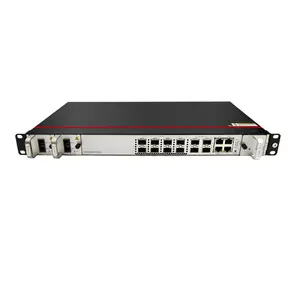
OptiXaccess EA5801E-GP08-H2 Gigabyte Passive Box-Shaped Optical Line Terminal With 4 GE 10GE Business Port 8 GPON 10G Data Rate


YLCNC Car Terminal Automotive Electrical Waterproof Wire To Wire Harness Auto Cable Connector DJ626-0.6A Terminals























Data terminals have evolved significantly from their early incarnations as personal digital assistants, becoming indispensable tools in various professional settings. These devices, characterized by their ability to store and retrieve information, have transcended their initial use, adapting to the demands of modern technology. A data terminal is a broad term that encompasses a range of handheld devices, each designed with specific functionalities to cater to different professional needs.
The landscape of data terminals is diverse, with each type tailored to particular tasks. Portable data terminals, for instance, are compact and designed for on-the-go use, often equipped with a keypad or a touchpad for data entry. Mobile data terminal computers offer more robust features, including the ability to run complex applications similar to those on a PC. For those in the field of logistics or inventory management, handheld terminals for data collection are specifically designed to streamline the data capture process, enhancing efficiency and accuracy.
The utility of data terminals spans various industries. In healthcare, they serve as vital tools for storing and accessing medical records, treatment details, and drug databases. Handheld data terminals are particularly useful for patients to track and communicate their symptoms to healthcare providers. In educational settings, these devices facilitate note-taking and e-book reading, becoming a staple in many learning environments. Moreover, specialized terminals like the radio data terminal are employed in communication-centric operations, proving essential in sectors that rely on real-time data transmission.
Data terminals are constructed with durability in mind, often featuring rugged designs to withstand the rigors of fieldwork. Materials used in the manufacturing of a data terminal unit are selected based on their ability to resist environmental stressors, ensuring the longevity of the device. For instance, a mobile dispatch terminal is typically encased in a robust shell to protect against drops and collisions, making it a reliable companion for field operatives.
Modern data terminals offer a plethora of advantages, including enhanced connectivity options such as GSM wireless capabilities found in a gsm wireless data terminal. This connectivity ensures that data synchronization and communication are seamless and efficient. The integration of various operating systems allows for a wide array of applications, making these devices highly versatile. Furthermore, the adaptability of data terminals, such as the pdt portable data terminal, enables their use in niche applications like underwater diving or navigation, highlighting their multifaceted nature.
Choosing the appropriate data terminal requires a clear understanding of the specific needs it is intended to fulfill. Whether it is for intensive data entry, requiring a portable data entry terminal, or for complex computing tasks that a mobile data terminal price can justify, the selection should align with the operational demands. Alibaba.com hosts a comprehensive array of data terminals, allowing professionals to find the device that best suits their requirements without the constraints of brand loyalty or price promotions.